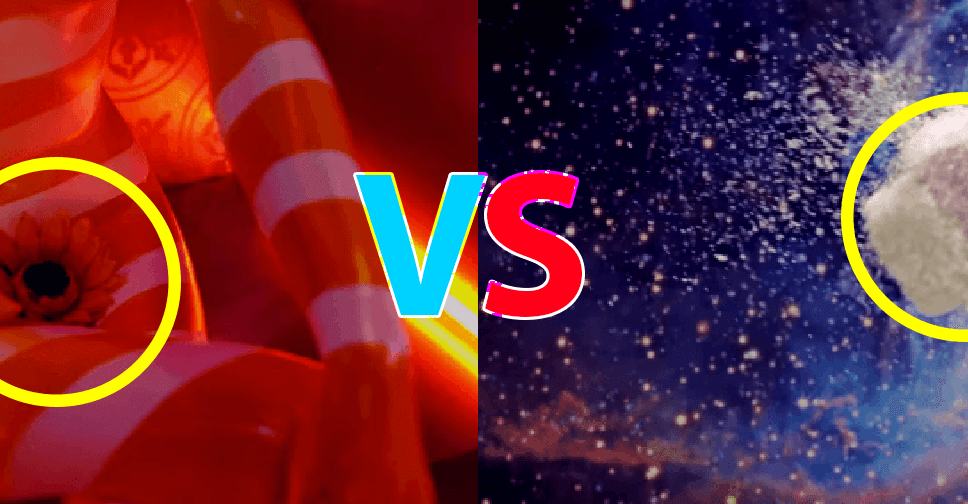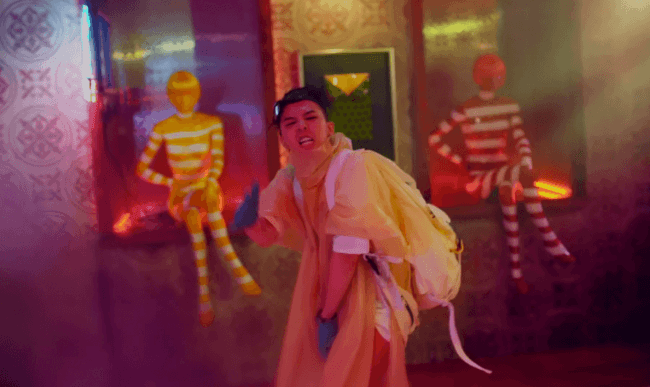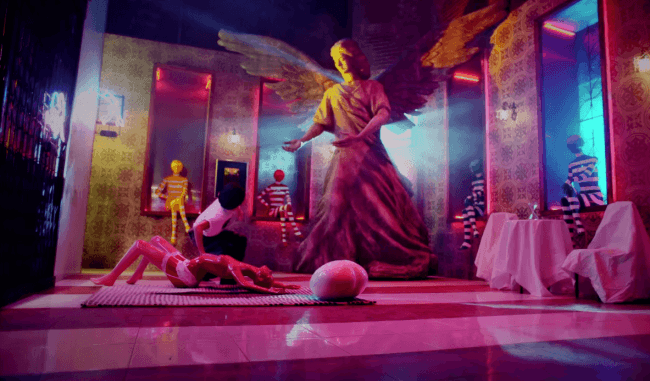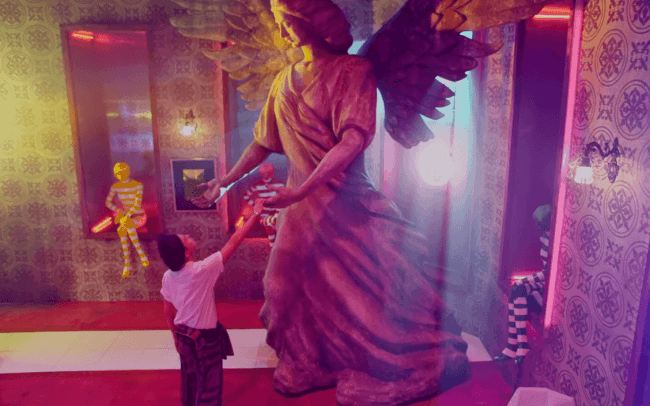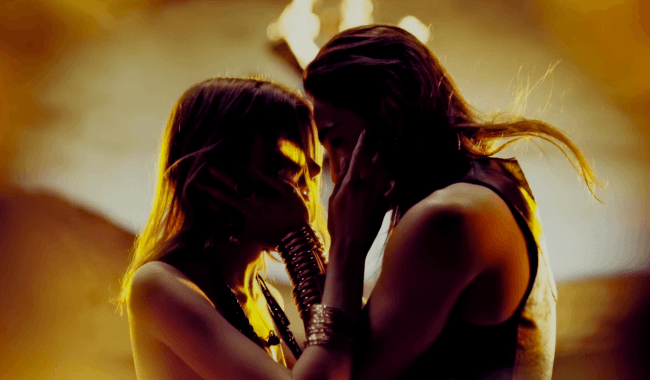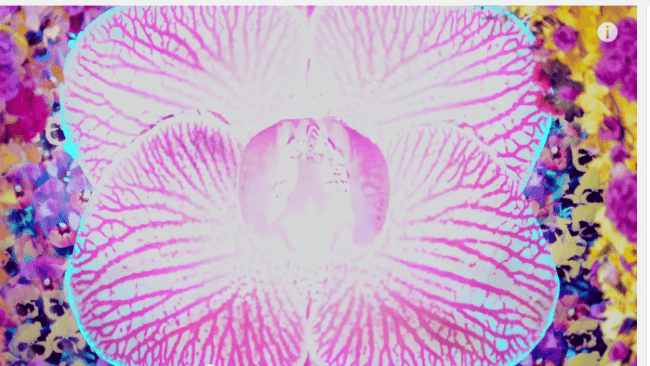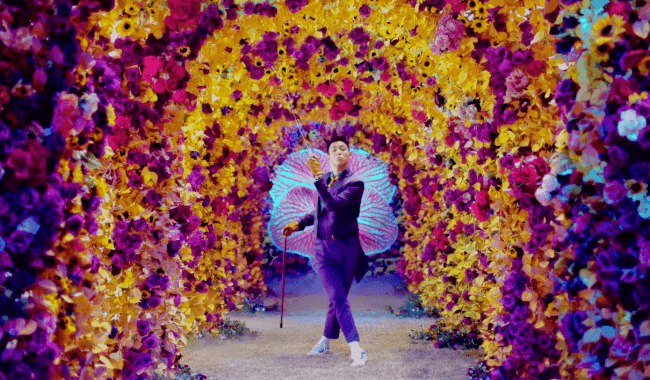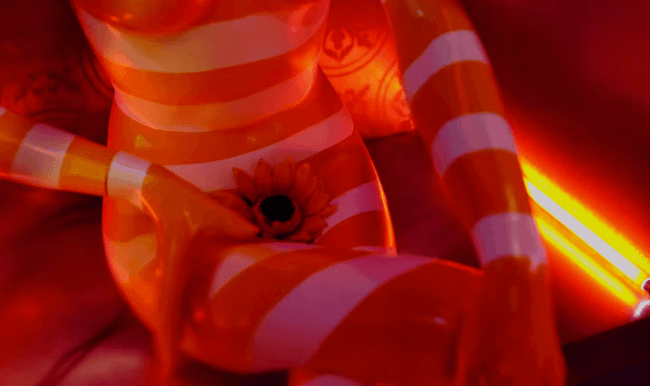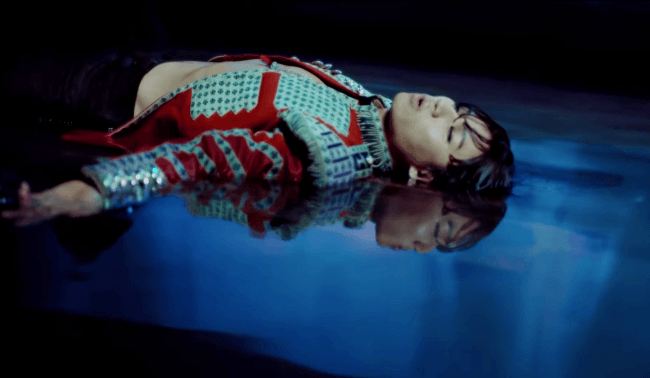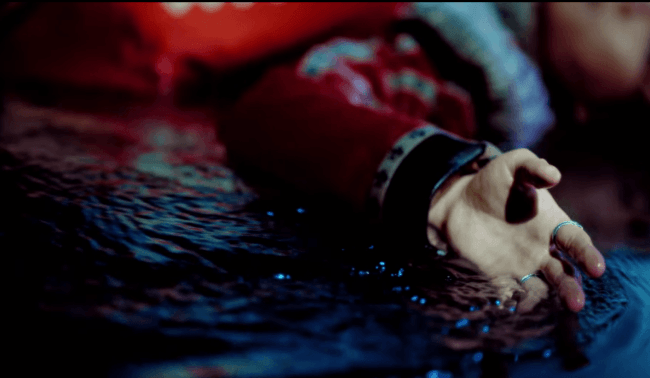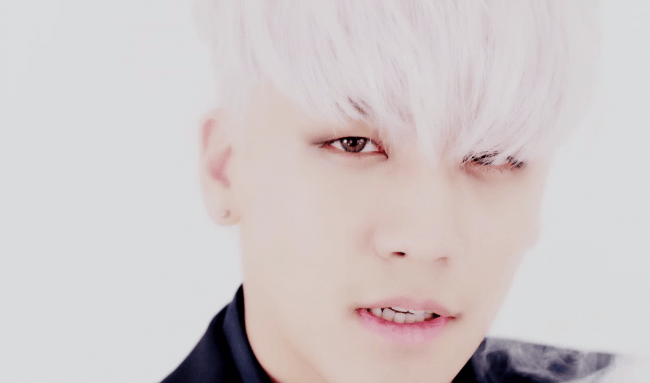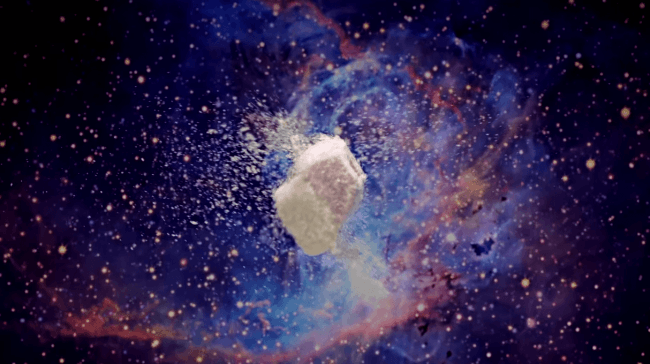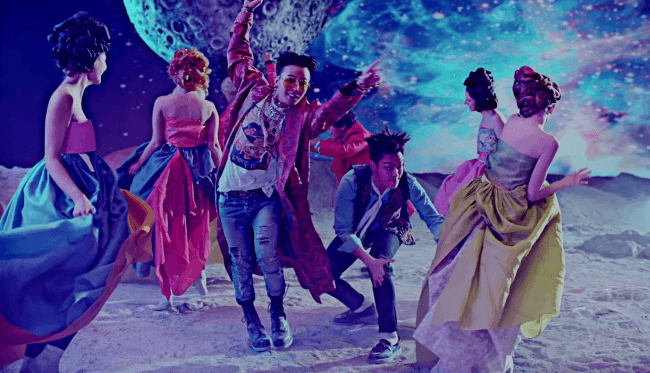BIGBANG has taken the K-Pop world by storm with their latest double release, especially with their eccentric and highly sexualized music video for “Bae Bae”!
Koreaboo took a closer look, examining all the symbolism in the video for our readers. There’s no denying the lasting impression the video leaves with its incredibly sexual style. Not only is there a reoccurring sexual theme, it also has a strong feeling of spirituality, masculinity and femininity.
Every scene is bursting with imagery and as the MV progresses, there are common themes of completion and fulfillment. In this article, we will take you through each scene one by one and give our view on the theme progression throughout the video.
G-Dragon
G-Dragon’s scene is the only one that does not feature a live female presence. Instead, he is surrounded by female mannequins. This in turn shows us that his scene is not that highly sexualized, and judging by the backpack he is wearing, depicts the feeling of a young man. So if he is not trying to depict sexuality what does G-Dragon’s scene mean?
We see an angel trapped behind bars, and although G-Dragon goes around touching the butts of female mannequins’ there is also a time where he is seen throwing his hands in the air and praying to the angel.
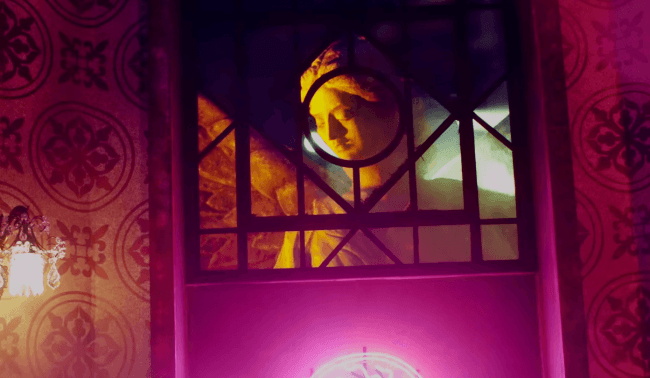
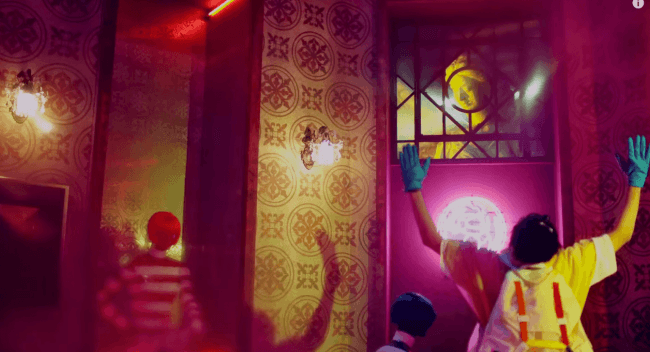
The Angel then comes out and G-Dragon deserts the mannequin and goes to take the angels hand. Angels are traditionally deemed as messengers between men and divine beings.
This shows that G-Dragons character is having an internal struggle between his sexuality and his spirituality. While he explores his inner desire, the angel is trapped but as the angel comes out, he accepts his spirituality and deserts his inhibitions towards sex.
Taeyang
Taeyang’s scene is all about power and masculinity. He embodies the prime example of an alpha male/Don Juan. Most of the time he is seen riding a horse, which are traditionally a strong symbol of masculinity and sexual energy. Renowned neurologist Sigmund Freud described horses as representing repressed or flourished sexual energy.
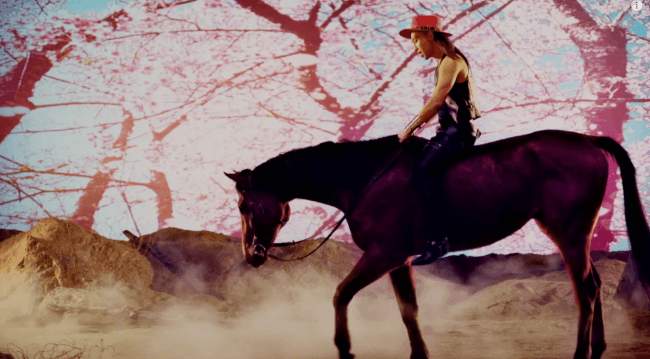
When Taeyang rides alone, he is surrounded by cherry blossom trees and the scene is very bright and pink. Cherry blossoms are recognized as being feminine and a symbol of innocence. Just as the horse represents male power, here we have the cherry blossoms representing female power. In China, they are also considered a symbol of female sexuality and beauty, and represents the power they wield to command a male partner.
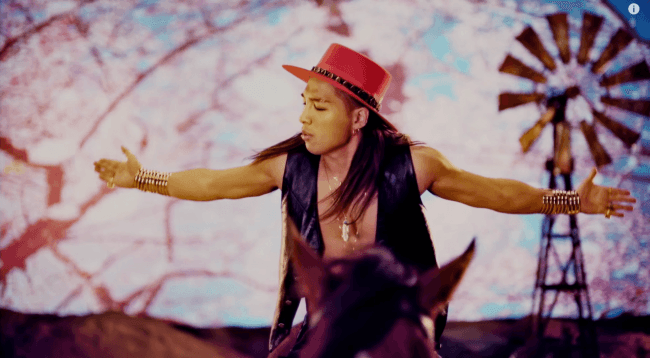
In the background is a spinning windmill, which represents the power of movement and stimulating force. Rotating forces such as windmills are often described as a symbol of divine power and spirituality. It doesn’t take long until the wheel is then on fire, and a woman is introduced to the scene, with the background turning into a dry desert with an orange sky.
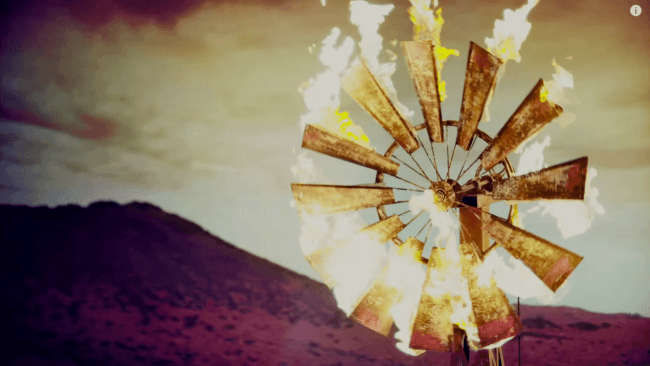
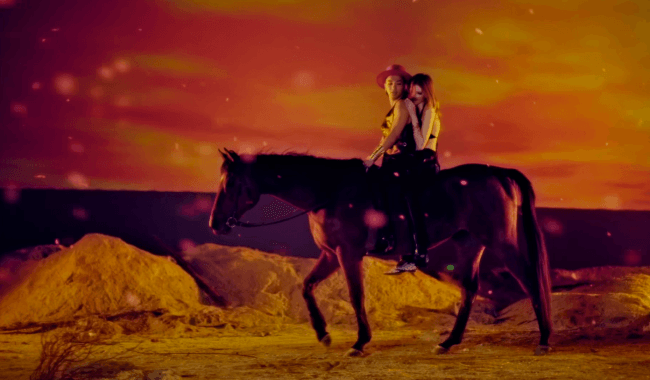
This seemingly represents power, passion and masculinity with fire representing purification and being associated with the sun (Korean: Yang aka Taeyang.) It both creates and destroys and thus symbolizes the fertility of God.
T.O.P
T.O.P’s scenes are all bursting with sexual innuendos, starting with a huge orchid which derives from the Greek word “orchis” meaning testicles.
Orchids in general are associated with sexuality and are known for unique reproduction method, which usually involves entrapment. Orchids rely on flies and bees to pollinate them, and in order to do so, release a strong scent. In some cases, they even trap the bees to make sure that they have passed on their pollen. Similar to how T.O.P spreads his pollen on the purple flowers via the syringe.
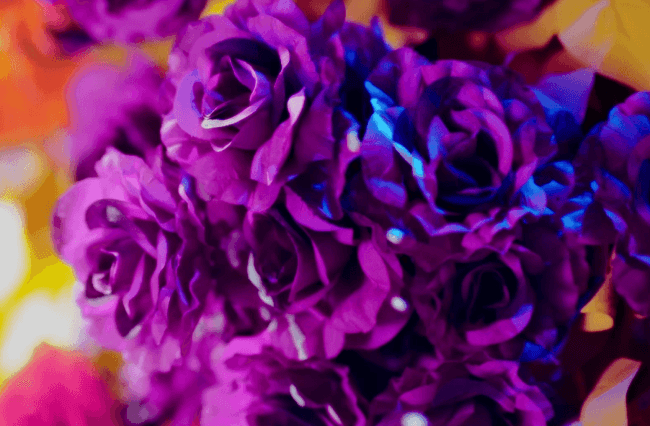
In this scene, T.O.P’s syringe seems to represent a tool which can spread pollen in order to reproduce, and has a baby flashing across the screen. It’s no mystery what this scene is supposed to represent!
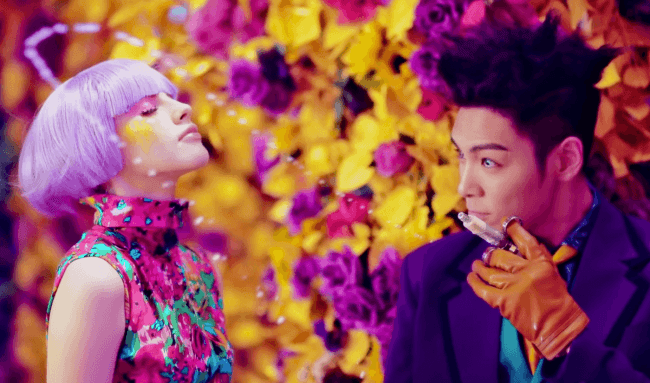
Orchids also represent both the male and female anatomy and are a symbol for procreation on top of sexuality. The fact that an orchid is a flower and T.O.P is inside a field of flowers also goes back to how the female genitals are referred to as flowers. We clearly see this in the first scene as a flower is placed in between the mannequins legs.
Daesung
This is where the music video takes a twist as it leaves fire and passion for love and renewal. Daesung is in a majestic island surrounded by water.

The woman he lays with emerges out of the water and is wearing clothing in beautiful blue hues.
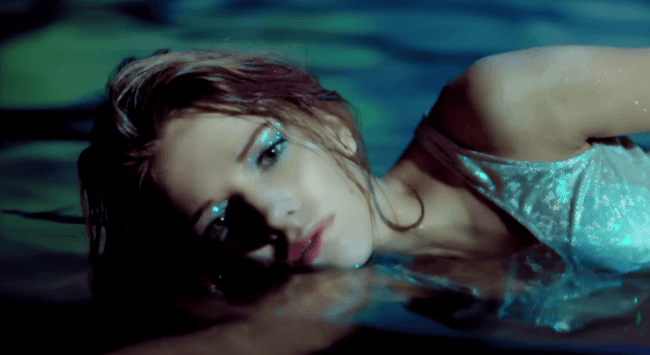
Water is the opposite of fire but still has similar symbolism in its nature. It stands for purity, healing and cleansing. While fire stood for masculinity, water stands for femininity.
While fire is associated with God, water is associated with Goddesses. Water still represents passion and emotion but in a calmer way that is meant to cleanse you. As Daesung lies in the water, it’s almost as if he is purifying his soul and cleansing his sins.
Seungri
Seungri’s scenes seem to lose all passion as he is left in a very dark chapel-like room. Seungri also does not have as much interaction with the woman in his scene as Taeyang, T.O.P and Daesung did.
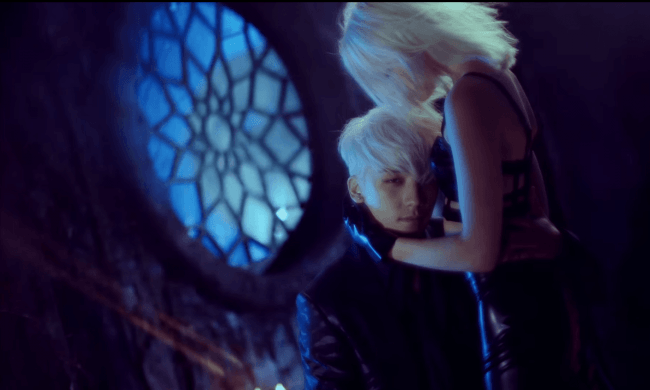
There are also scenes of a black rose withering and melting, which symbolizes a rejected or dying love.
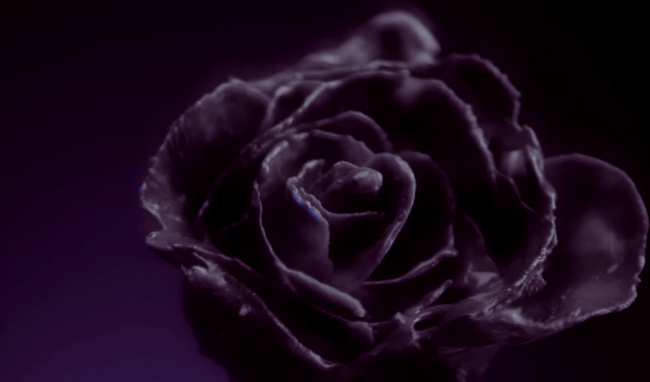
This is the followed by the woman disappearing from Seungri’s arms and we see him enter a state of purity and innocence as he lays in a white backdrop.
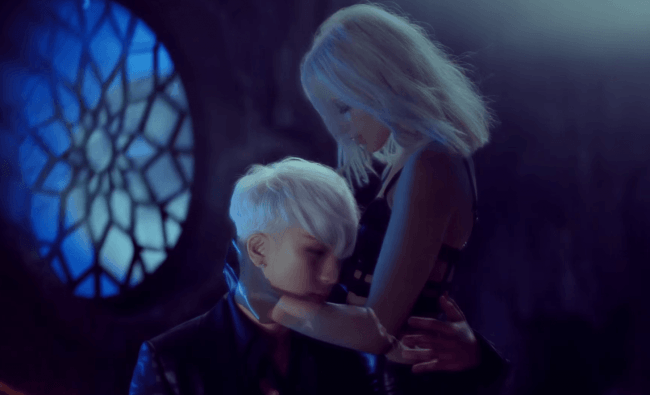
B Seungri and the woman in his scene have white hair that seems to denote a few things. Traditionally, in anime tropes, men who have white hair are often depicted as having a broken moral compass. Women with white hair are often seen as being magical and of the spiritual realm.
This brings Seungri back to the internal struggle, similar to the first scene where the male has impure desires that is laid to rest by a spiritual being.
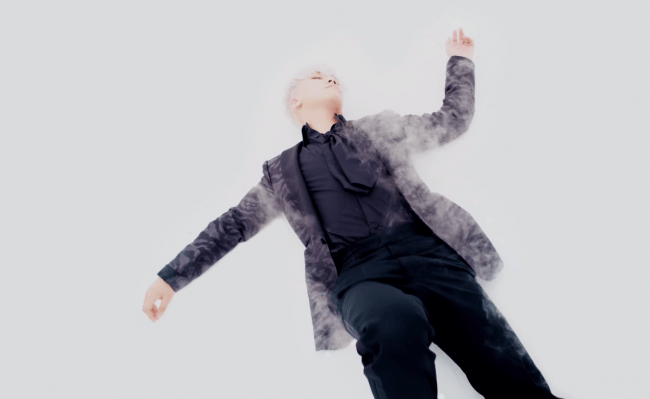
Final Scene
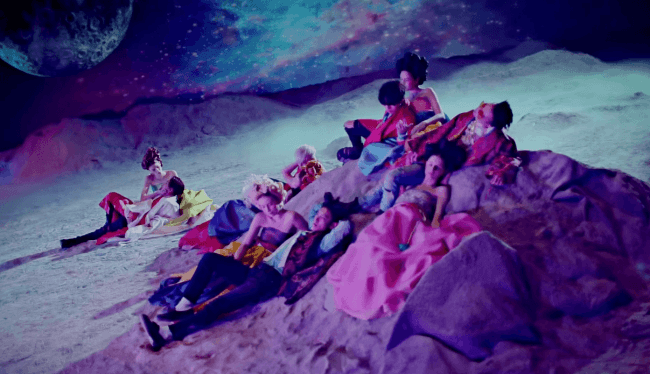
The final scene is one that puts all the boys together on the moon. Again bringing back the strong theme of sexuality, but it is now very subtle in comparison to the first three scenes. A full moon denotes fulfillment and the obtainment of desire. It also stands as another symbol of feminine power and fertility, with a consistently changing moon representing the inconsistency of life.
The somewhat subtle image of sexuality comes to play again when we see that quick scene of rice cakes smashing into one another.
There is a Korean folk tale that talks about an immortal rabbit on the moon who pounds rice in order to make rice cakes. When you pound the rice cake a certain sound is made which denotes two people having sex.
Conclusion
Now looking at the whole video, there are two motifs that surround every scene: circles and color. Circles denote completion as well as eternity. They are closed but they begin nowhere and end nowhere. In spirituality it denotes the endless joy that the righteous will receive in the after life.
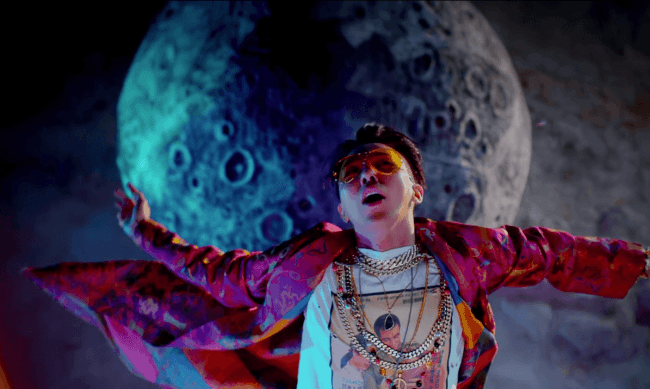
G-Dragon had a background that encompassed a flower within a circle, with an angel behind bars that had a circle in the middle. Taeyang had the spinning windmill which was then engulfed in fire, creating a circle as well. T.O.P had the main orchid which is circular, but also a baby representing the “circle of life.” Daesungwas on a circular island, and Seungri was in a dark room with a circular window. In the end they are on the moon, which is round, and dance together in a circle.
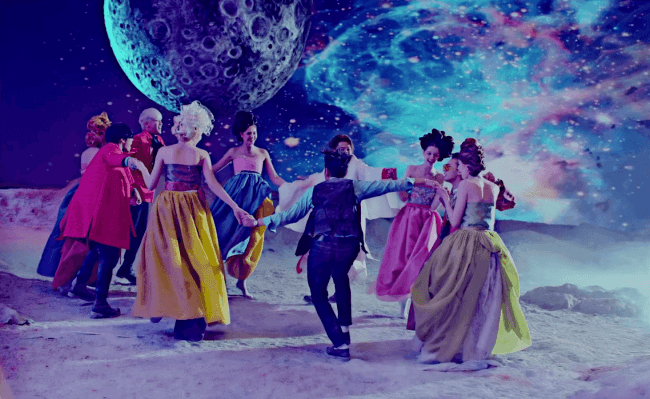
Color-wise we moved from very passionate and vibrant colors to cooler and calmer hues. G-Dragon has neon oranges, pinks and blues while Taeyang has vibrant pink and fiery reds and orange. T.O.P has purple and orange which denote power, romance and joy. With Daesung we then transition to a calm blue and with Seungri we go back to innocence with white with a moonlight blue shining down on him. As we go into the final moon scene, we are reintroduced to colors but they are still very calm hues that are almost dreamlike.
Source: Koreaboo


